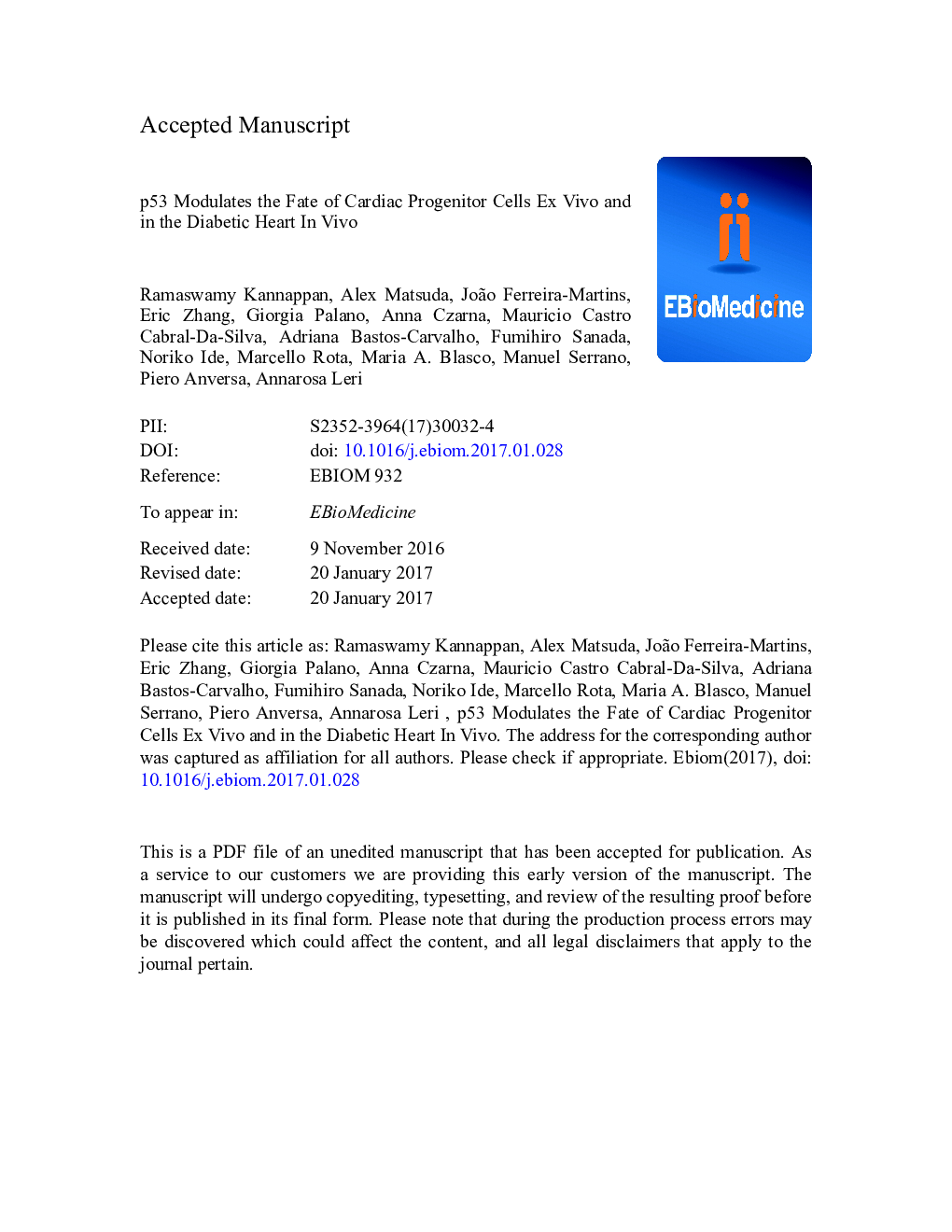| Article ID | Journal | Published Year | Pages | File Type |
|---|---|---|---|---|
| 8438749 | EBioMedicine | 2017 | 47 Pages |
Abstract
p53 is an important modulator of stem cell fate, but its role in cardiac progenitor cells (CPCs) is unknown. Here, we tested the effects of a single extra-copy of p53 on the function of CPCs in the presence of oxidative stress mediated by doxorubicin in vitro and type-1 diabetes in vivo. CPCs were obtained from super-p53 transgenic mice (p53-tg), in which the additional allele is regulated in a manner similar to the endogenous protein. Old CPCs with increased p53 dosage showed a superior ability to sustain oxidative stress, repair DNA damage and restore cell division. With doxorubicin, a larger fraction of CPCs carrying an extra-copy of the p53 allele recruited γH2A.X reestablishing DNA integrity. Enhanced p53 expression resulted in a superior tolerance to oxidative stress in vivo by providing CPCs with defense mechanisms necessary to survive in the milieu of the diabetic heart; they engrafted in regions of tissue injury and in three days acquired the cardiomyocyte phenotype. The biological advantage provided by the increased dosage of p53 in CPCs suggests that this genetic strategy may be translated to humans to increase cellular engraftment and growth, critical determinants of successful cell therapy for the failing heart.
Keywords
Related Topics
Life Sciences
Biochemistry, Genetics and Molecular Biology
Cancer Research
Authors
Ramaswamy Kannappan, Alex Matsuda, João Ferreira-Martins, Eric Zhang, Giorgia Palano, Anna Czarna, Mauricio Castro Cabral-Da-Silva, Adriana Bastos-Carvalho, Fumihiro Sanada, Noriko Ide, Marcello Rota, Maria A. Blasco, Manuel Serrano, Piero Anversa,
